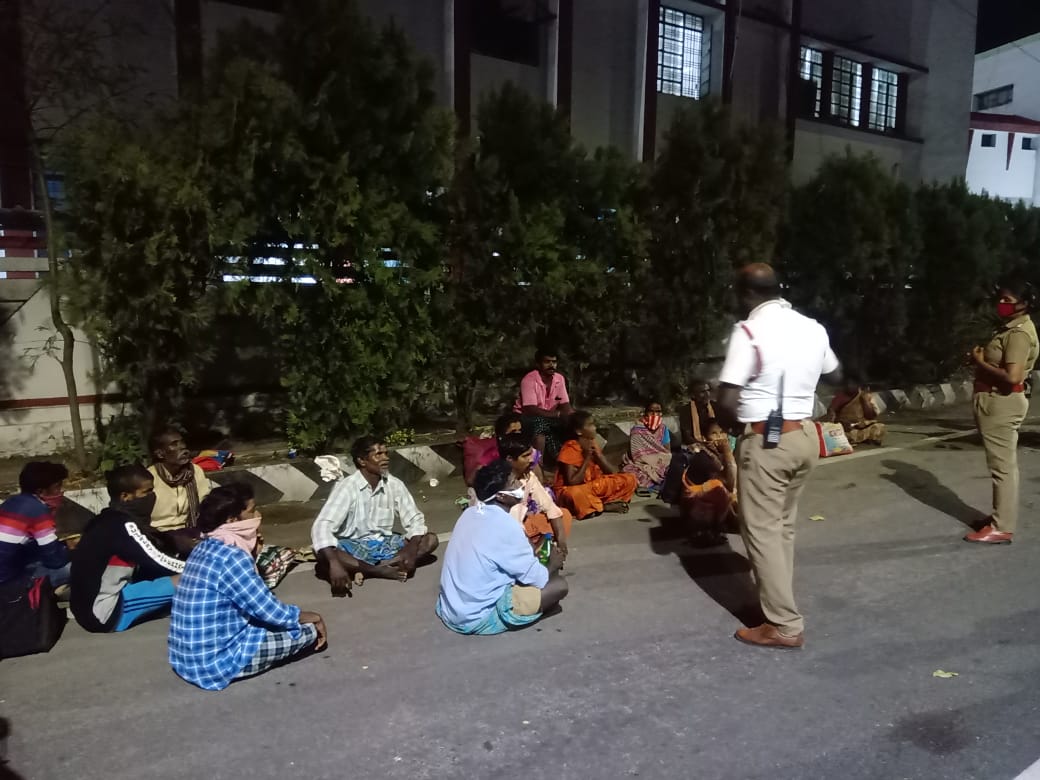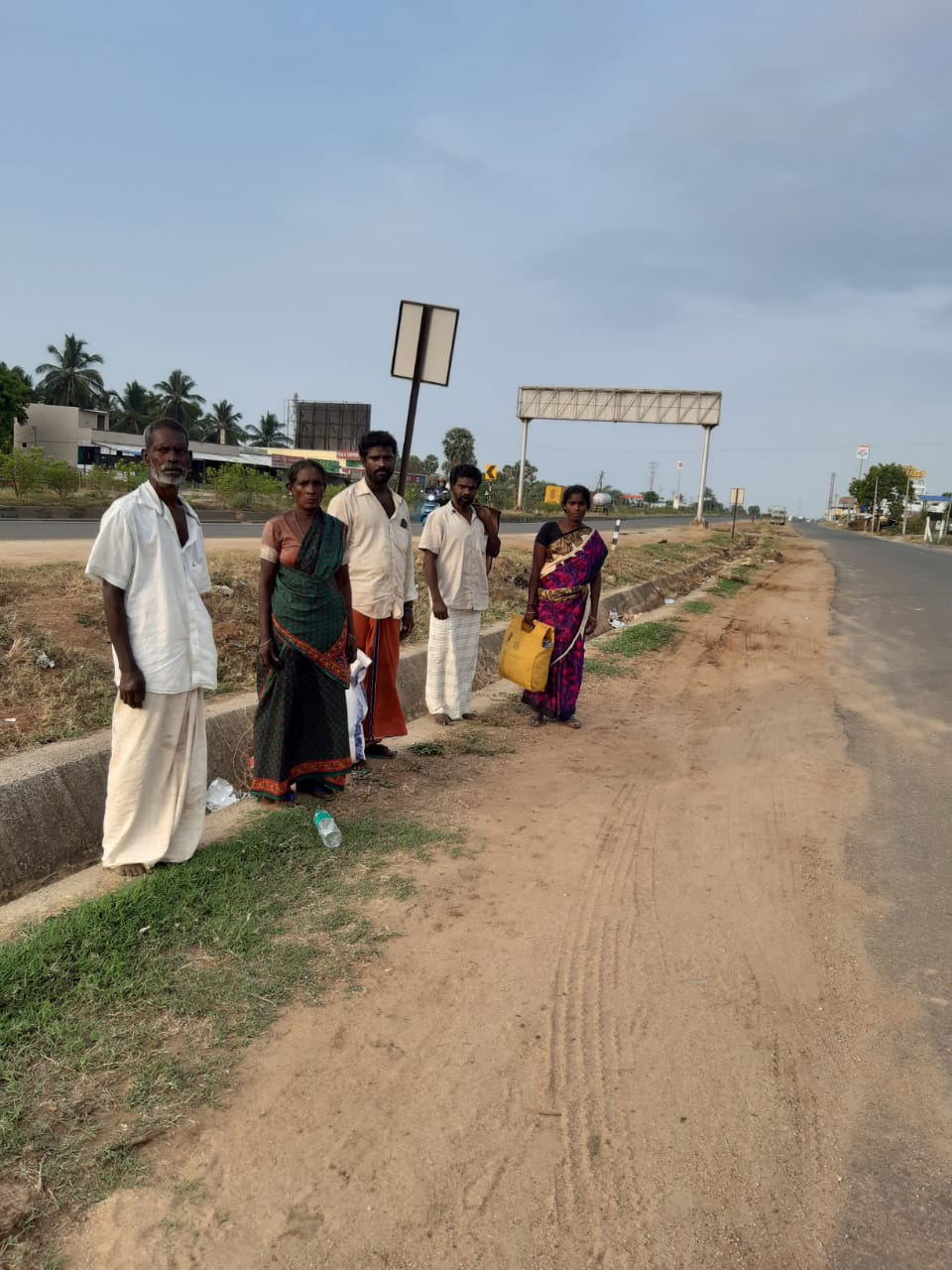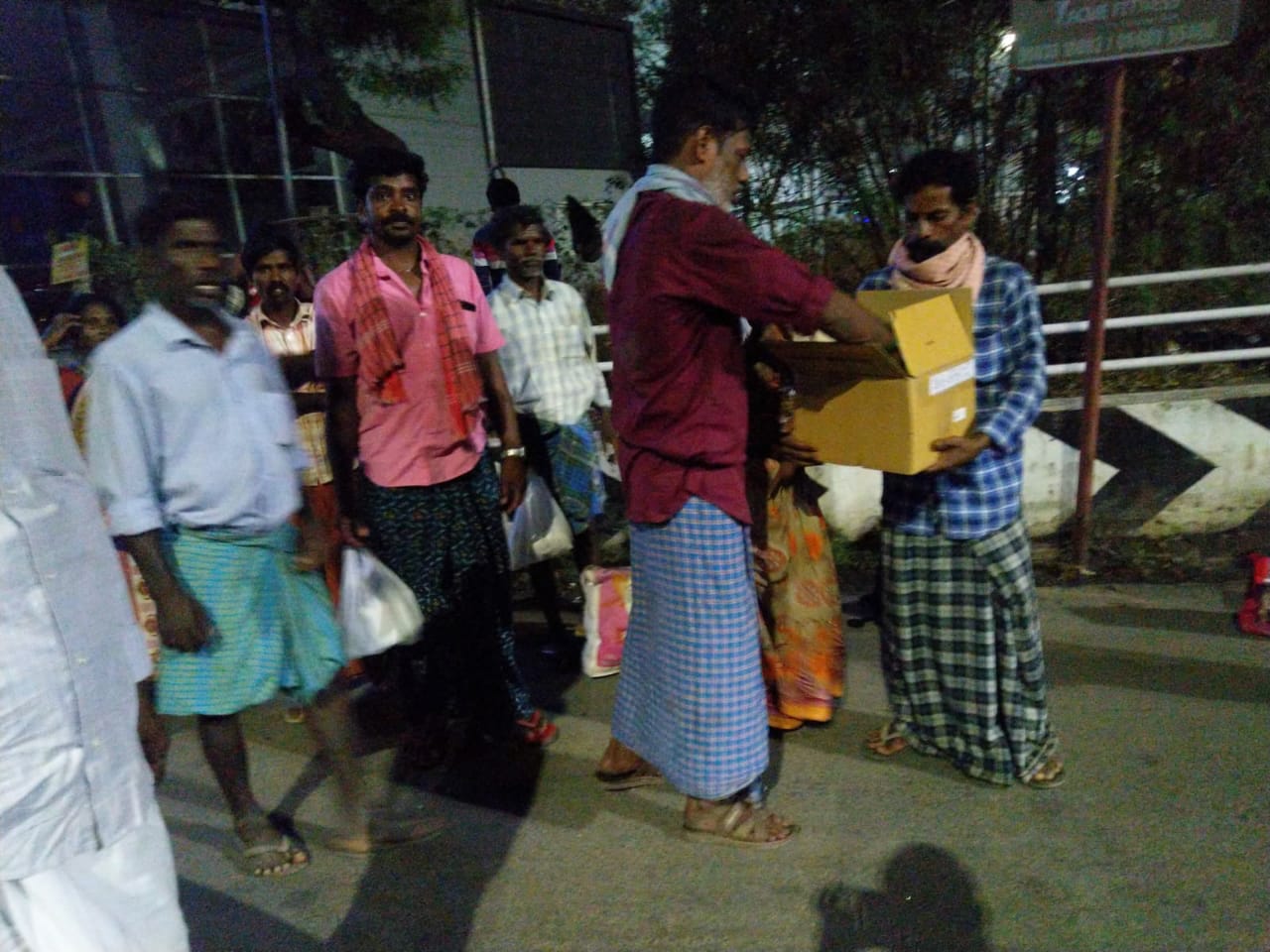
COVID-19: Stranded migrant workers starve on streets, walk miles home

Even as the Tamil Nadu state government has managed to rescue 1,728 migrant labourers at Chennai Central railway station and cramped them in community halls in Chennai, there are over thousands in other parts of the state who are left on the streets to starve amid the coronavirus lockdown.
“We would die, not because of coronavirus, but due to hunger,” says Rabi-ul Sheikh, a migrant worker from Bengal. “Government officials came to our help, but we do not want to go with them as they dump 40–50 people in a single vehicle. Our neighbours who are in the shelters told us that about 40–50 people are made to share small rooms in schools. We do not want to risk our lives.”
Rabi and 12 of his friends hailing from Burdwan district in West Bengal, were working in Kozhikode in Kerala in tailoring, embroidery and other garments related works.
After lockdown was announced, the 13, along with other hundreds of others, left Kerala and managed to reach Chennai Central Railway station to catch the train to Kolkata.
But before they could continue their journey, the lockdown came into effect and they were all stranded at the station.
Rabi and some others have taken refuge outside a hotel near Chennai Central Railway station.
In the two days since then, Rabi said, they had not had any proper food. “Once in a while, we manage to get tea. We do not have much money to buy food. It would be great if somebody can arrange for food,” he told this reporter.
Apart from Rabi and 12 of his friends, there are about hundred people in and around Chennai station.

“Whenever police see us, they start chasing us and we would go and hide in small streets or alleys. Once they leave, we would again and go and sleep in the side streets near Chennai Central Railway station,” says Rabiul Haque, another migrant worker from West Bengal.
He says they understand the seriousness of COVID-19. “That’s why we are on the streets, instead of going with the government officials. We do not know how long we will be able to run and hide ourselves from the police. If we get good food, we will sleep on the streets until this lockdown is over,” he says.
It is not just migrant workers from West Bengal who are stranded on the streets, but also those from other parts of Tamil Nadu, who went to Kerala, and are now left to fend for themselves during this crisis.
On Wednesday night, over 50 people were seen roaming on Avinashi road in Coimbatore city despite prohibitory orders. When police stopped them, they were found to be migrant workers hailing from Kallakurichi in Tiruvannamalai district in Tamil Nadu. They were employed as farm labourers in Malapuram district of Kerala for over a month.
“It was not a big trouble on the one-day Janata curfew, as we managed to get food from our neighbours and the farm owner. But the situation worsened after the 21-day curfew started on Tuesday evening,” said a 45-year-old migrant worker, who did not want to be named.
“After the 21-day curfew came to effect, we were not even allowed to get out of our house even to purchase essentials. Even if we stepped out, we were supposed to show our Kerala identity cards. Since we didn’t have one, we were asked to leave as soon as possible,” he says.
As many as 500 people working in Malappuram started to leave in batches and managed to reach Walayar, a Kerala-Tamil Nadu border town on Wednesday afternoon.
On noticing the people, health and revenue officials questioned them and after a thorough health check-up, asked them to leave, without offering any help or shelter.
“The officials at the borders did not ask whether we had food or not, but they asked us thousand times whether we got in touch with anyone having coronavirus or anyone who returned from foreign. We did not see any bus or lorry on the highways as the state borders were closed. We thought we would board a vegetable-carrying vehicle to reach our village, but it did not happen,” says another worker, a native of Kallakurichi town.

On learning that lorries carrying essentials from Coimbatore to Salem would take the Avinashi road, they walked into the city and waited on the road.
At LIC junction and Lakshmi Mills junction on Avinashi road, Coimbatore police gave them food and left them to walk to reach their native place.
According to the workers, they were able to reach Tamil Nadu at least by walking about 100 kilometres a day. It would take another 250 kilometres to reach Kallakurichi from Coimbatore city.
When asked why they were not given shelters or alternative travel arrangement, Coimbatore district collector K Rajamani said that their travel from Kerala itself violated the curfew.
“How do you expect us to make food and transport arrangements for them to reach their place? It is not just these 20 people. There were about 1,000 Tamil people from Kerala who reached the Tamil Nadu-Kerala borders on Thursday night. If I provide shelters to these 20 people, then I will have to give shelters to those 1,000 people as well,” he said.
“Those who have entered Tamil Nadu and decided to walk to their place, have no option. They have to face it. But those who came on Wednesday night were stopped at the border and we spoke with the Palakkad collector to give them temporary shelters,” Rajamani added.
Asked about the migrant workers being cramped in shelters and stranded on the streets, Chennai Corporation Commissioner G Prakash told reporters that they would be decongested soon after finding suitable places.
“Upon reaching these shelters, they first underwent a health check-up and we are providing all the essentials,” Prakash said.

